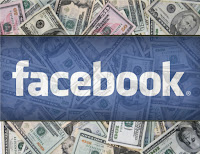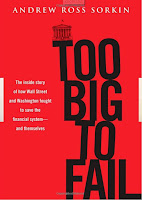 Goldman Sachs together with its select foreign clients are investing in Facebook through a private placement valuing the firm at $40 – $50 Billion, the initial steps in an Initial Public Offering (IPO) transaction which is likely to come to market in 2012. By structuring the transaction as a limited private offering Goldman avoids
Goldman Sachs together with its select foreign clients are investing in Facebook through a private placement valuing the firm at $40 – $50 Billion, the initial steps in an Initial Public Offering (IPO) transaction which is likely to come to market in 2012. By structuring the transaction as a limited private offering Goldman avoids both the lengthy process and required filing of public disclosure statements with the Securities and Exchange Commission.
 The exclusivity of this offering is prompted by Goldman’s cozy relationship with its clients, “For Goldman executives who manage money for wealthy families, so-called special investments have long been a major selling point in luring clients to the firm. The argument to prospective clients is that by placing their money with Goldman, they have access to the same investment opportunities as the firm, long considered one of the world’s smartest investors.” (here)
The exclusivity of this offering is prompted by Goldman’s cozy relationship with its clients, “For Goldman executives who manage money for wealthy families, so-called special investments have long been a major selling point in luring clients to the firm. The argument to prospective clients is that by placing their money with Goldman, they have access to the same investment opportunities as the firm, long considered one of the world’s smartest investors.” (here)Goldman will earn both significant fees on the private placement and ultimately on the IPO and Goldman as well as its clients hope to benefit by significant appreciation in the valuation of Facebook during the period leading up to and perhaps after any Initial Public Offering. Citing intense media scrutiny and criticism of the transaction, Goldman who originally planned to offer participation to both American and Foreign clients restricted the sale to foreign clients. (here)
It should be clearly established that the risk involved in this private placement and the subsequent IPO should be exclusively borne by Goldman and its investors. They and they alone should bear the risk of loss on both their equity contribution as well as any debt employed. But by virtue of the Dodd-Frank Wall Street Reform and Consumer Protection Act, “moral hazard” has effectively been institutionalized and Goldman can effectively shift the risk of any potential loss on this offering to the Treasury and the American taxpayer. If they profit they and their customers will prosper. If they fail they will run to the Federal Reserve and Treasury for a bail out.

 “Remember that Goldman Sachs is now a bank-holding company – a status it received in September 2008, at the height of the financial crisis, in order to avoid collapse (see Andrew Ross Sorkin’s blow-by-blow account in “Too Big to Fail” for the details.)
“Remember that Goldman Sachs is now a bank-holding company – a status it received in September 2008, at the height of the financial crisis, in order to avoid collapse (see Andrew Ross Sorkin’s blow-by-blow account in “Too Big to Fail” for the details.) This means that it has essentially unfettered access to the Federal Reserve’s discount window – that is, it can borrow against all kinds of assets in its portfolio, effectively ensuring it has government-provided liquidity at any time.
Any financial institution with such access to such government support is likely to take on excessive risk – this is the heart of what is commonly referred to as the problem of “moral hazard.” If you are fully insured against adverse events, you will be less careful.
Any financial institution with such access to such government support is likely to take on excessive risk – this is the heart of what is commonly referred to as the problem of “moral hazard.” If you are fully insured against adverse events, you will be less careful.
Goldman Sachs is undoubtedly too big to fail – in the sense that if it were on the brink of failure now or in the near future, it would receive extraordinary government support and its creditors (at the very least) would be fully protected.
In all likelihood, under the current administration and its foreseeable successors, shareholders, executives, and traders would also receive generous help at the moment of duress. No one wants to experience another “Lehman moment.”
This means that Goldman Sachs’s cost of financing is cheaper than it would be otherwise – because creditors feel that they have substantial “downside protection” from the government.” (here)
So much for the Administration’s pledge to end Too Big To Fail, excessive Financial Institution speculation, and further taxpayer bail outs. And not only are American taxpayers subsidizing Goldman’s operations, but they aren’t even allowed to benefit by participating in the IPO process. It seems only the wealthiest families can pay and play. Well, we can’t say we weren’t forewarned about wealth redistribution during the 2008 election campaign. Apparently, that $5 Million (Charles Gasparino, “Bought and Paid For”, 2010, page x) donated to Democrats by Goldman Sachs and its management team reaped big rewards for Goldman and a select few of its wealthy foreign clients.
Tell ’em where you saw it. Http://www.victoriataft.com




